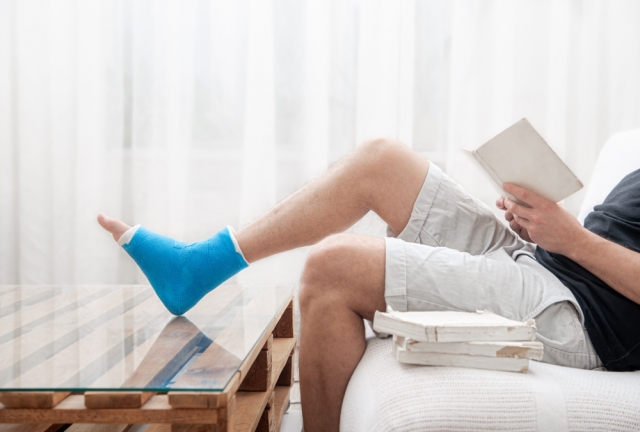Recovering from a personal injury is often a physically demanding process, but the mental and emotional challenges can be just as significant, if not more so. Whether it's a sports injury, a car accident, or a workplace incident, the aftermath can leave individuals grappling with feelings of frustration, helplessness, and even depression. However, with the right mindset and strategies, it's possible to rebuild resilience and stay mentally strong during the recovery journey. Here's how to navigate the emotional ups and downs while fostering a sense of hope and progress.
The Importance of Self-Compassion
One of the first steps in maintaining mental resilience during personal injury recovery is practicing self-compassion. It's easy to fall into the trap of self-criticism, especially when progress feels slow or setbacks occur. However, treating yourself with kindness and understanding can make a world of difference.
Self-compassion involves acknowledging your pain and struggles without judgment. Instead of berating yourself for not healing faster or being unable to perform certain tasks, remind yourself that recovery is a process, and it's okay to take it one step at a time. Techniques like positive self-talk, mindfulness, and gratitude journaling can help shift your mindset from one of frustration to one of acceptance and patience.
Reframing Negative Thoughts
Injury recovery often comes with a barrage of negative thoughts: “I'll never get back to normal,” “This is too hard,” or “I'm a burden to others.” These thoughts can be overwhelming and hinder your progress. Reframing them into more positive or realistic perspectives is a powerful way to build mental resilience.
For example, instead of thinking, “I'll never get back to normal,” try reframing it to, “Healing takes time, and I'm making progress every day.” Cognitive-behavioral techniques, such as identifying and challenging negative thought patterns, can be particularly helpful in this process. By focusing on what you can control and celebrating small victories, you can cultivate a more optimistic outlook.
Staying Connected to Hobbies and Passions
An injury can disrupt your ability to engage in activities you love, whether it's playing a sport, painting, or even something as simple as taking long walks. However, staying connected to your hobbies and passions, even in a modified way, can provide a sense of purpose and joy during recovery.
If your injury limits your physical abilities, consider adapting your hobbies to fit your current situation. For example, if you're an avid runner sidelined by a knee injury, you might explore swimming or yoga as alternative forms of exercise. If you enjoy crafting or painting, look for ways to modify your techniques to accommodate your physical limitations.
Engaging in creative or intellectual pursuits, such as reading, writing, or learning a new skill, can also help keep your mind active and focused on positive endeavors. These activities not only provide a distraction from pain or frustration but also remind you that there's more to life than your injury.
The Role of Physical Therapy and Gentle Exercise
Physical therapy is a cornerstone of injury recovery, but its benefits extend beyond the physical. Engaging in gentle, guided exercise can have a profound impact on your mental health by releasing endorphins, reducing stress, and boosting your mood.
Even if your injury limits your mobility, there are often ways to incorporate movement into your routine. Simple stretches, breathing exercises, or seated yoga can help you stay active and maintain a sense of progress. Working with a physical therapist can also provide structure and accountability, giving you a clear path forward and a sense of accomplishment as you reach milestones.
Communicating with Healthcare Providers
Open and honest communication with your healthcare providers is essential for both physical and mental recovery. Don't hesitate to share your emotional struggles with your doctor, physical therapist, or counselor. They can offer guidance, adjust your treatment plan, or recommend additional resources to support your mental health.
For example, if you're experiencing symptoms of depression or anxiety, your healthcare provider may suggest therapy, medication, or support groups. By addressing your mental health needs alongside your physical recovery, you can create a more holistic and effective healing plan.
Building a Support Network
Recovering from an injury can feel isolating, but you don't have to go through it alone. Building a strong support network of family, friends, and peers can provide emotional comfort and practical assistance.
Let your loved ones know how they can support you, whether it's by helping with daily tasks, offering a listening ear, or simply spending time with you. Support groups, either in-person or online, can also connect you with others who understand what you're going through. Sharing your experiences and hearing from others can provide validation, encouragement, and new perspectives.
Setting Realistic Goals
Setting realistic, achievable goals is a key component of staying mentally strong during recovery. Break your recovery process into smaller, manageable steps and celebrate each milestone along the way. For example, if you're recovering from a broken leg, your goals might start with standing for a few minutes, then progress to walking short distances, and eventually returning to more strenuous activities.
By focusing on these incremental goals, you can maintain a sense of progress and motivation, even when the overall journey feels long. Remember to be flexible and adjust your goals as needed, based on your physical and emotional state.
Practicing Mindfulness and Stress Reduction
Mindfulness techniques, such as meditation, deep breathing, or progressive muscle relaxation, can help you stay grounded and manage stress during recovery. These practices encourage you to focus on the present moment, reducing anxiety about the future or frustration about the past.
Apps like Calm or Headspace offer guided meditations and mindfulness exercises that can be done from the comfort of your home. Even a few minutes of mindfulness each day can help you feel more centered and resilient.
Enduring Recovery
Recovering from a personal injury is a multifaceted process that requires attention to both physical and mental health. By practicing self-compassion, reframing negative thoughts, staying connected to your passions, and building a strong support network, you can rebuild resilience and stay mentally strong during your recovery journey.
Remember, healing is not linear, and it's okay to have ups and downs along the way. By focusing on what you can control and celebrating your progress, you can navigate the challenges of injury recovery with hope and determination. With time, patience, and the right strategies, you'll not only heal your body but also emerge stronger and more resilient than ever.






